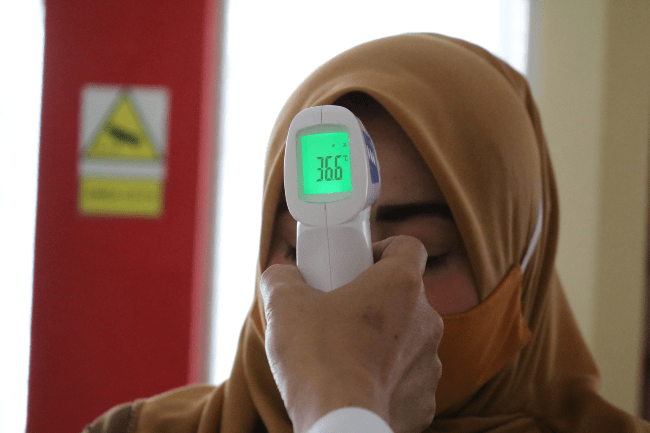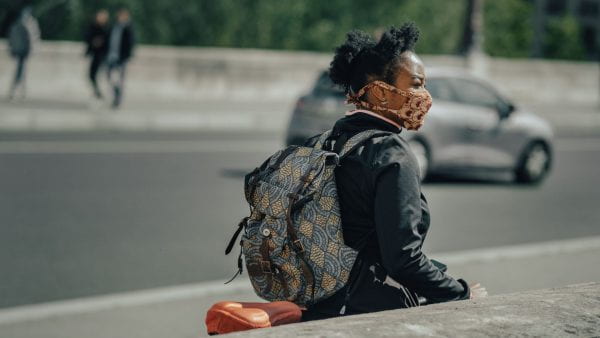Written by Lindsey Pike

These are uncertain times. Both research and policymaking has been thrown into unknown territory, and anxiety is running high. The coronavirus situation is dynamic and is likely to change how we live and work for the foreseeable future. At PolicyBristol we are looking at how we can reprioritise how we work and what we do, to ensure we’re making the most of the resources we have within the team.
The team are working from home, but are available to discuss policy engagement and related issues – related to COVID, or any other topic – over the phone or videoconferencing.
We understand that both researchers and policy colleagues that we work with are under pressure to adapt to working from home, often while coordinating and managing childcare and other responsibilities. However, we’ll continue to signpost you to relevant opportunities and information to make sure that, especially in times such as these, policy decisions are informed by a robust evidence base.
We’re also aware that other policy priorities, while currently overshadowed, have not gone away. We’d like to reiterate that regardless of your area of research or policy, we’re here to support you.
Many colleagues in our research community are already forging links with public health, clinical, social and third sector services to offer the resources we have. If you are a researcher whose work is relevant to Covid-19, we have listed some relevant engagement opportunities below: please get in touch with one of the team (emails below) if we can support you in any way; for example with support to edit or structure scientific summaries into policy/ lay friendly ones, horizon scanning, or any other task related to getting findings out there and used.
Contact your faculty’s PolicyBristol Associate
Meet the team and contact us here.
We hope you stay safe and well during this time.
Resources from the University of Bristol
Guidance for researchers during the COVID-19 outbreak (internal).
The University is keen to hear about the circumstances our partners and communities are facing, how they are responding and how we might work together to meet these unparalleled new challenges. Please contact us if you have suggestions for how the University, our staff and students can support your organisational or community activities in response to COVID-19.
The University of Bristol’s researchers, staff and students are working together and with partners from across society to understand coronavirus (COVID-19) and its far-reaching impact on our lives. Find out more here.
National consultations and inquiries related to COVID19
Online harms (Home Affairs Committee) The inquiry seeks evidence on Online Harms arising from the Covid-19 lockdown period and the adequacy of the Government’s proposals to counter them. Deadline 21 May 2020
Covid-19 and the food supply (Environment, Food and Rural Affairs Committee)
This inquiry examines issues related to the food supply chain and access to healthy foods. Deadline: 22 May 2020
Economic impact of coronavirus (Treasury Committee) In this stage, the Committee will examine the operational effectiveness, cost and sustainability of the Government’s and Bank of England’s support packages. The Committee will also examine the impact on the economy and different sectors, the implications for public finances, and how the Government can work towards a sustained recovery. Deadline 27 May 2020
The impact of coronavirus on business and workers (Business, Energy and Industrial Strategy Committee)
The BEIS Select Committee has launched an inquiry into the impact of coronavirus on businesses and workers. Deadline: 29 May 2020
The impact of Covid-19 on education and children’s services (Education Committee) The inquiry will examine both short term impacts, such as the effects of school closures and exam cancellations, as well as longer-term implications particularly for the most vulnerable children.
Deadline: 31 May 2020
Left behind white pupils from disadvantaged backgrounds (Education Committee) This inquiry will investigate the issues faced by disadvantaged groups, with an initial inquiry into the educational underachievement of white pupils from disadvantaged backgrounds including white working class pupils. This inquiry will examine the extent of the achievement gap between this group and their peers and how it is measured, alongside a consideration of the effects of the COVID-19 outbreak. It will also look at what the priorities should be for tackling this issue. Deadline 5 June 2020
Defence contribution to the UK’s pandemic response (Defence Committee) This inquiry will focus on the Ministry of Defence’s and the Armed Forces’ contribution to the United Kingdom’s response to the Covid-19 pandemic. The scope will include: assessing the MoD’s planning and preparedness for a pandemic; understanding how the Armed Forces have supported the civilian authorities during the pandemic; evaluating the effectiveness of the specific actions and activities undertaken by military and civilian personnel, and; exploring how the MoD has ensured that potential adversaries have not taken advantage of the need to focus on the pandemic response. Deadline: 15 June 2020
Impact of COVID-19 on DCMS sectors: (Digital Culture Media and Sport Committee) The DCMS Committee has launched an inquiry into the ‘Impact of Covid-19 on DCMS sectors’. It will consider both the immediate and long-term impact that Covid-19 and the related social and financial measures are having on the wide range of industries and organisations under the Committee’s remit. The Committee expects to hold a number of evidence sessions from late April onwards to hear directly from stakeholders, arms-length bodies and Government about what is being done and what further support is needed. Deadline 19 June 2020
Coronavirus and Scotland (Scottish Affairs Committee). Deadline 23 June 2020
Coronavirus: implications for transport: (Transport committee). The Transport Committee is asking transport workers, stakeholders and members of the public to write to them about the transport issues they face during the coronavirus outbreak. MPs will explore the impact felt by the industry, its workers and passengers in a rolling programme of work to monitor the impact of coronavirus on UK transport, sector by sector. Deadline: 29 June 2020
The science of COVID-19: (Science and Technology Committee (Lords) This inquiry will investigate the scientific and technological aspects of the COVID-19 pandemic, including the nature of the SARS-CoV-2 virus, its transmission and spread, the development of vaccines and treatments, and how digital technologies can be used for tracking and modelling. The inquiry aims to help Government and society learn from the pandemic and better prepare for future epidemics.Deadline: 30 June 2020
The Government’s response to Covid-19: human rights implications
(Human Rights Joint Committee)
The Committee is seeking evidence on how the Government is ensuring measures are human-rights compliant, the impact of these measures on human rights in the UK, and the groups who will be disproportionately affected. Deadline: 22 July 2020
UK Science, Research and Technology Capability and Influence in Global Disease Outbreaks (Science and Technology Committee)
Once the COVID-19 pandemic has passed its peak, the Committee will inquire formally into the place of UK research, science and technology in the national and global response, and what lessons should be learned for the future. Deadline: 31 July 2020
Past COVID inquiries
Impact of Covid-19 on the charity sector
(Digital, Culture, Media and Sport Committee)
Deadline: 16th April 2020
- This is a short inquiry into the impact on the charity sector. Find out more here.
Home Office preparedness for Covid-19
(Home Affairs Committee)
Deadline: 21 April 2020
- The Home Affairs Committee is undertaking a short inquiry into the Home Office’s preparations for and response to Covid-19 (Coronavirus). Find out more here.
The Covid-19 pandemic and international trade
(International Trade Committee)
Deadline: 24th April 2020
- This wide-ranging inquiry seeks views on impact on UK businesses, supply chains, and access to essential goods. Find out more here
Unequal impact: Covid-19 & people with protected characteristics
(Women and Equalities Committee)
Deadline: 30th April 2020
- The committee wants to hear about the different and disproportionate impact that the Coronavirus – and measures to tackle it – is having on people with protected characteristics under the Equality Act. Find out more here.
Humanitarian crises monitoring: impact of coronavirus
(International Development Committee)
Deadline: 17 April/ 8th May 2020
- This inquiry is seeking evidence in two waves; current situation and immediate risks (17 April) and longer-term issues and implications (8 May). Find out more here.






